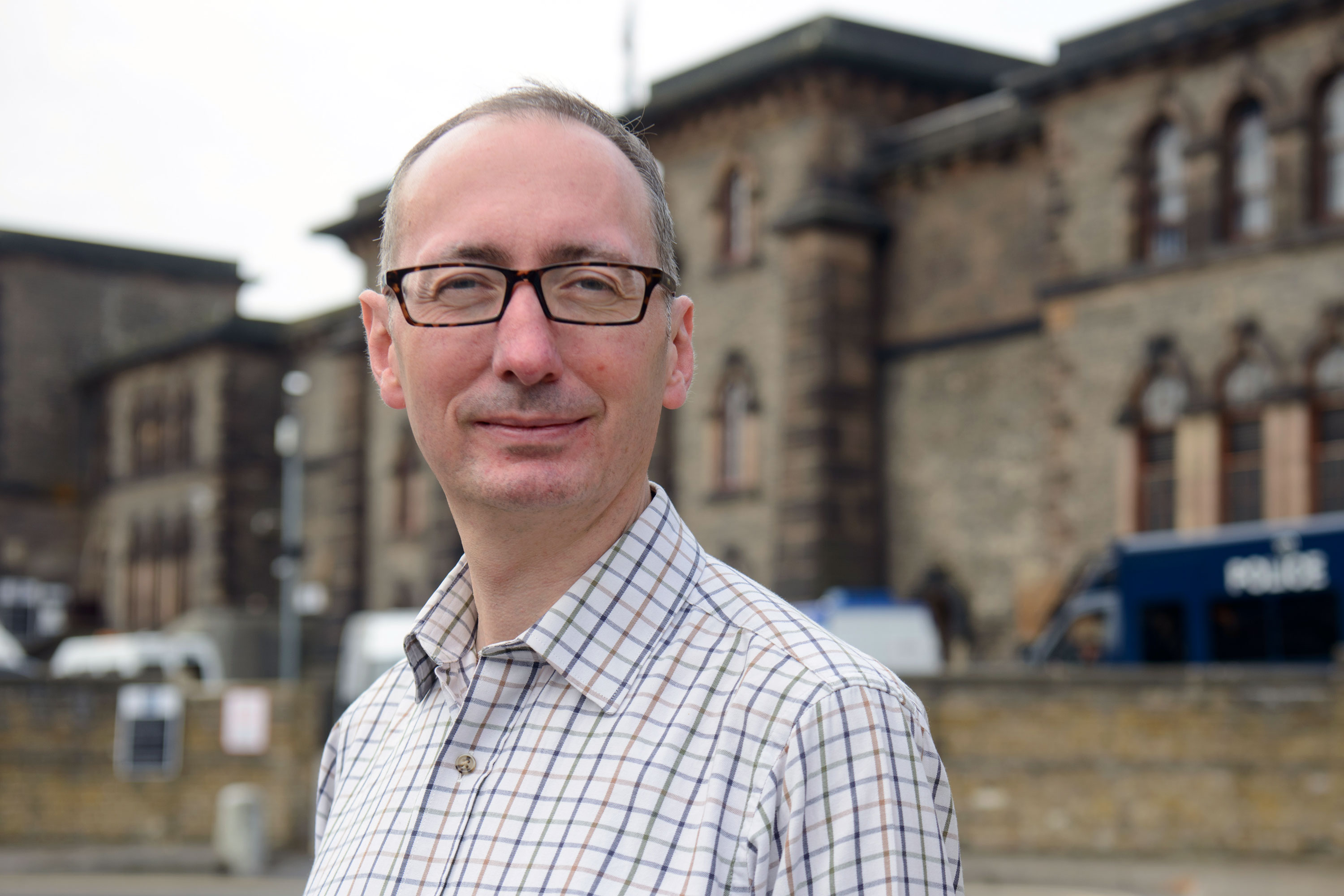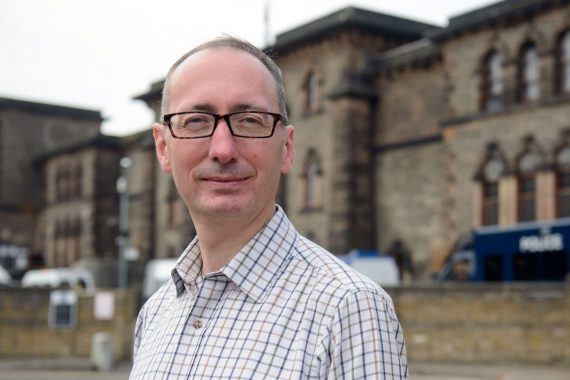Profile: Dr Alex Bunn

Age: 45
Role: Portfolio GP including role as a prison GP and BMA national rep for prison GPs
Location: HMP Wandsworth, south-west London
Hours worked per week: 15 hours as a prison GP
09.00
Doctors are used to a starting the day with a handover. Mine starts with a handover of items that might breach security. In exchange for my phone I am given a leather pouch for my keys and a whistle that looks endearingly Victorian.
09.30
This morning I’m seeing patients on their second day in the prison to offer screening. There are some surprisingly complex patients, with colostomies, cancers, dementia, and some needing dialysis that will be a nightmare to schedule. Thankfully I only see around 10 patients, and there’s no QOF. The bread and butter, or porridge, of clinic is substance misuse, safer prescribing and mental health. The routine is frequently punctuated by drama. In my first week there was an outbreak of salmonella, which provoked an urgent phone conference and I had to triage 300 cases.
12:30
I suture a patient who has cut his forearm in protest at the no smoking policy. Another was scalded in a fight: extra sugar was put in the coffee to make the liquid stick and burn deeper. With limited access to secondary care, I have reskilled in a variety of areas, including suturing. YouTube has been a brilliant tool to relearn shoulder reductions.
14.00
I attend our weekly complex care meeting with pharmacy and nursing teams. We discuss ethical dilemmas: should we distribute condoms when advised by urology? Should we get involved in drugs searches? The BMA has useful national guidance.
15.00
I have a booked GP clinic. It’s surprising that there are so many DNAs, where everyone’s location is known. There are also problems accessing records from abroad or of patients who have been on the run or under an alias.
I have a conflict with a patient who requests a single cell because of snoring and sleepwalking, and have to explain that those cells are for those with most medical need. Prescribing is also a minefield as we have to avoid any opioid, sedative and pregabalin, which are ‘prestige’ medications. We have to be aware that some mouthwashes contain alcohol, that capsaicin can be weaponised, and soya milk for lactose intolerance can be sold on to bodybuilders.
He is threatening to swallow a razor blade
It is frustrating that so many patients are prescribed clonazepam monotherapy for epilepsy without seeing a neurologist, at doses equivalent to 160mg of diazepam. The combination of sedative medications is even more hazardous when mixed with new psychoactive substances like ‘spice’. These are popular as they are cheap and can’t be detected by sniffer dogs, but cause collapse, delirium and ambulance calls. It’s hard to stop this trade, especially when dealers offer ‘home delivery’ to the cells via drone.
18.00
Usually I am home by now but have an extra session in a converted Victorian cell, seeing new patients on their first night. But there’s a substance misuse client banging on the door who wants Subutex, as he has been buying it on the wing and is running out of money. He is playing with a razor blade, and is threatening to swallow it if I don’t comply. We have to be firm but caring with a refusal. With so much challenging behaviour and duplicity, it is easy to suffer compassion fatigue, but it’s hard not to be moved by the back stories of our patients, frequently from highly disadvantaged, traumatised and dysfunctional families. The mental health team is impressive. They manage some of the hardest cases, such as the conversion syndromes, emotionally unstable personality disorder and ‘dirty protests’. Chaplaincy is also in high demand, although the numbers who sign up for both chapel and mosque suggest any chance to leave the cell is relished.
My last patient has been taking heroin to silence the voices, but I suspect the drugs are secondary to the psychosis. It might take some time to transfer him to a psychiatric unit, but it feels good to identify a treatable case.
21.00
The release home is sweet. Wearing a tie inside is prohibited for our own safety, so I put mine on en route to dinner.
If you would like a taster of prison medicine in your area, or if you work in a prison and would like to join the BMA discussion forum (BMA membership not required) contact alexbunn@btinternet.com

















